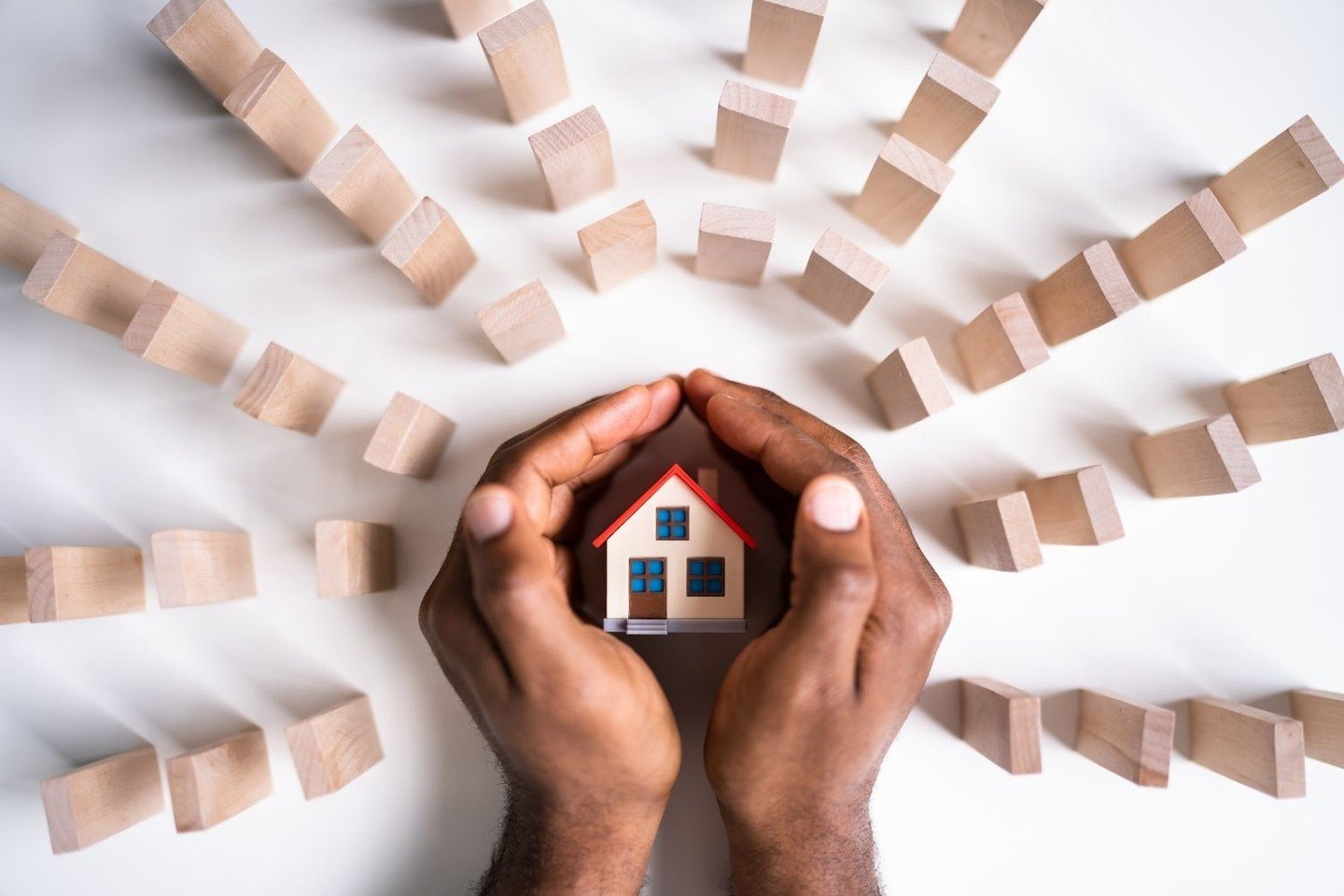Can you get a home loan with your score?
If you’re planning to get a home loan, you should prepare by checking your credit score.
What's the minimum credit score you need for a home loan?
The majority of South Africans rely on home loans to buy property. But what happens if you have a poor credit score? We find out whether you still have a chance of qualifying.

Can you get a home loan with your score?
If you’re planning to get a home loan, you should prepare by checking your credit score.
When assessing your home loan application, lenders consider several factors, such as your income, savings, employment, age, and credit history. Your credit score also plays a major role in this. It helps determine the interest rate on your loan, as well as the required deposit.
When you apply for a home loan, it’s important to understand your credit score so that you know what kind of loan products best suit your financial situation. If you have a lower credit score, you shouldn’t be disheartened as there are opportunities for every credit score range.
In this article, we find out what your chances are of being approved for a home loan, and we outline some tips and tricks to help you secure your dream home.
In South Africa, lenders have different standards when it comes to credit scores. This means that there isn’t a minimum credit score required to get a home loan.
The majority of lenders in South Africa don’t make their credit criteria public and they use different calculations to determine loan eligibility.
Credit bureaus, nonetheless, have benchmarks that can be used as a guide for individuals. They can check their credit scores and find out whether they have a decent chance of loan approval.
You can use the following brackets from Experian as a benchmark:
Credit score | Description |
|---|---|
Below 599 | Although it is unlikely that individuals with this credit score will be able to qualify with the big banks or lenders for a home loan, there are still opportunities to find alternative lenders to assist. Unsecured loans from a second-hand lender may be a viable option for you. However, make sure you’re not being taken advantage of. Before committing to this kind of loan, read up about your rights as a borrower. |
599-615 | Usually, a credit score in this range is considered a risk to mortgage lenders as it’s related to negative lending aspects in credit history. In order to make up for this, lenders may charge you a higher interest rate and a larger initial deposit. Make sure you can afford your repayments for 20 or 30 years. If you’re uncertain about your future income, be cautious about accepting a home loan with high interest rates. |
616-633 | Securing a personal loan with this credit score will be quite easy. However, a larger deposit may be required for a large loan amount with a bank or big lender. This means that you might get a better deal elsewhere. Make sure you do your homework and find a reputable lender that offers you the best rates for your circumstances. |
634-657 | This is considered a good credit score. The majority of lenders will consider applications with this score and they’re generally labelled “creditworthy”. |
658-740 | This is one of the highest credit score ranges, making borrowers in this range much more likely to qualify for a loan. Those who are in this credit range have a good chance of negotiating lower interest rates. |
Certain lenders consider below-average credit scores unfavourable. However, smaller lenders may still be willing to provide you with the support you need. Even a reasonably poor credit score can secure a loan – it will just come at an additional cost.
Know where you stand for your home loan application? Login to ClearScore to view your free credit score and report. You can then return to this article and find out under which bracket you fall.
Lenders would be thrilled if everyone had a credit score of 658 and above. However, if your score is 634 or higher, you’re likely to qualify for a home loan from any lender, including the big banks.
If your credit score is lower than this, you can still apply for a home loan. But if you’re not in a rush to buy the property you’ve been eyeing, it may be worthwhile to work on your credit score before you make your home loan application.
Join one of ClearScore's free coaching plans and set aside the next 6 to 12 months to improve your credit score. In the end, you may save thousands of rands by securing a lower interest rate.
Based on Experian’s brackets, a below-average credit score is less than 599. Those in this bracket are on the lower end of the credit-active population and lenders will view them as unpredictable.
If you have a bad credit score, you should be mindful that bigger lenders are unlikely to consider your application due to the uncertain nature of your financial history. But just because it’s difficult to reach does not mean it’s impossible.
If this includes you, it’s important to realise that there are ways you can still improve your credit score – so don’t be discouraged. The most effective way to build your credit score is by joining a free, self-paced coaching plan, such as “Build your credit” or “Buying your first home”.
The salary required for a home loan depends on the size of the loan. For example, you would need a larger income for a R5 million property than you would for a R1 million property.
Lenders are legally required to extend loans responsibly. This means that it’s illegal to lend money if the applicant won’t be able to pay back the loan. But each lender assesses these criteria differently, as small overdue payments may hold less weight than larger ones.
They will consider whether you have enough disposable income left at the end of each month to meet your monthly home loan repayments. You can easily work this out by using our free affordability calculator.
If lenders determine that you don’t have a large enough income to successfully repay the loan within the repayment period, they will not be able to approve your loan.
Before you apply for a home loan, see if you can find ways to increase your after-costs income. Perhaps you can monetize one of your hobbies or maybe you can take on some freelance work. If you can prove that your extra income is sustainable, you will increase your chances of loan approval.
Having a bad credit score doesn’t mean that you will never qualify for a home loan. If the minimum criterion for a home loan is not met, there are ways to improve your credit score over time.
Here are the top strategies you should consider:
- Manage a financial plan with savings: It’s important to organise your regular expenses and establish a budget so that your bills don’t pile up and become overwhelming.
- Pay your bills on time: Making consistent, punctual payments will grow your credit score. This is because positive credit behaviour is also listed on your credit report.
- Use automatic payment methods: You can set up debit orders to settle smaller bills. This is a great way to ensure you develop a positive payment history.
- Settle your outstanding debt: It may be helpful to show that you’re able to pay off outstanding debt, and it may also improve your credit score.
- Choose the right lender: Denied credit applications also appear on your credit report. Pick the right lender for your circumstances so that you don’t have to repeatedly apply for credit.
- Team up with your partner: If you apply for credit with another person, make sure you both work on your credit scores before applying. You can ultimately ace your home loan application with the love of your life.
The first step to improving your credit score is to know and understand it. Sign up with ClearScore and get lifetime access to your credit score and report.
Isabelle is a freelance finance writer and journalist in Cape Town. She helps make managing your personal finances calm, clear and easy to understand.
